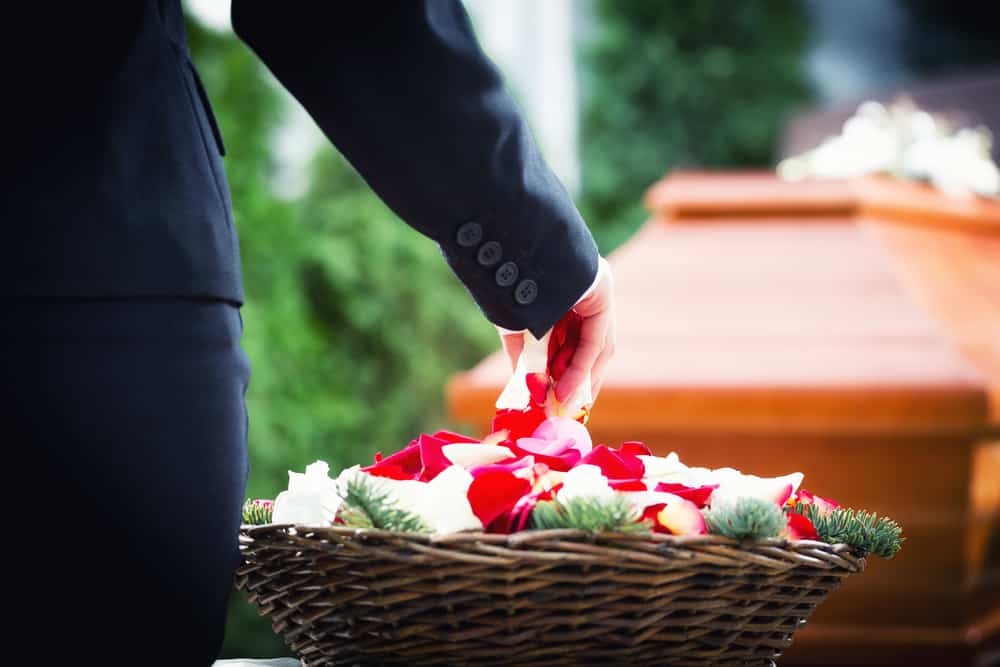
The business of caskets in Canada may be a ‘dying’ or declining business in the funeral sector. The Canadian cremation rate is now just over 73%, and although some families still opt to have a traditional funeral service prior to cremation, others are opting for a simple direct cremation with no service.
How much does a casket cost?
A steel casket can cost as little as $995 or as much as $20,000. All depending on the extravagance of the casket, and where it is purchased from.
Canadians are turning to the Internet and direct casket suppliers as an alternative to paying the expensive cost of purchasing a casket from their funeral home. There are a number of online and high street direct casket stores, which can now deliver a casket at up to 70% less than funeral home prices. As a typical example, a standard 18 gauge steel casket costing approximately $4495 from a funeral home, can be purchased online for as little as $995.
As this market is given more exposure, and as Canadians find that saving costs can be a driving factor in arranging a funeral, this industry is growing. When an average funeral can cost as much as $10,000, and as much as a third of this cost is the price of a casket, it is easy to see why Canadians are opting to save money and purchase a casket direct.
What is the difference between a casket and a coffin?
A casket is typically known for its rectangular shape and can be wood, metal, or steel, whereas a coffin traditionally has six sides and is more often constructed from wood. The term coffin is used more extensively in Europe and Canada, as historically wooden coffins have been more popular. Also, wooden coffins are used more for the purpose of cremation service funerals.
Do you need a casket for a cremation?
No. There is no legal requirement to use a casket or coffin for cremation. Wooden coffins are typically suitable for a funeral service that is to be followed by the cremation of the deceased.
What is a cremation casket?
If a direct cremation or a cremation after viewing, is being conducted there is no need to spend unnecessarily on the expense of a coffin. A cremation can be conducted using a cremation container. This is typically a cardboard or plywood box that safely holds the body to transfer it into the crematorium retort.
Can you rent a casket for a funeral service?
Yes. This is a growing trend as more families choose cremation services but do not want the expense of purchasing a casket for the funeral service. Some funeral homes have realized that offering a rental casket better serves their families, and can even be a way to generate income.
Specially designed rental caskets are constructed to enable the deceased to be carefully moved into the rental casket inside a cardboard inner container. So the rental casket remains completely sanitized. Fees for renting a casket vary, but you can expect to pay between $400 to $1,200 for this option.
What different types of caskets or coffins are there?
Caskets and coffins typically fit into the categories below:
Metal Caskets
Metal caskets are made from bronze, copper, or stainless steel. They are categorized by their gauge, which is the thickness of the steel.
Wooden Caskets or Coffins
Typical wooden coffins are most often made from hardwoods. Such as ash, maple, elm, cottonwood, and poplar. Hardwood coffins can be ornate with highly polished finishes displaying beautiful wood grains and trimmed with silver or gold handles.
Alternatively, simple wooden coffins can be used, especially where cost is a consideration or religious or cultural beliefs. For example, for some faiths, simplicity is part of the death care ritual.
Fiberglass Caskets
Fiberglass has come to replace metal caskets in more recent years. It is a strong, but much lighter construction, and can be made in a variety of finishes that can emulate metal or wood.
Biodegradable
There is a selection of coffins that can be constructed in biodegradable materials and considered suitable for a natural or green burial. Wooden coffins with no metal parts, often made from pine. Or bamboo, willow, hemp, or woollen burial coffins.
Can you make your own coffin?
Yes. This can be an ideal way to save costs but do something uniquely personalized for the deceased. You can construct a simple wooden coffin, or decorate a plywood/cardboard container. This is more common when families are opting to conduct a home funeral.

